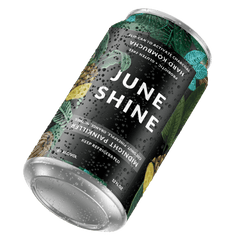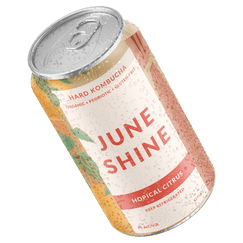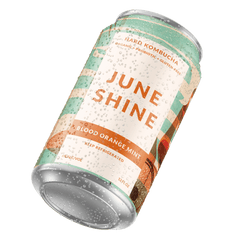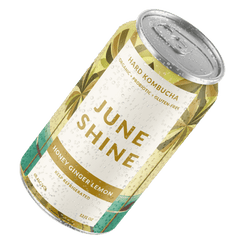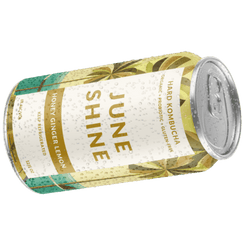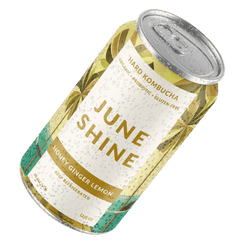Cascade Hops 101

If you drink American craft beer, chances are you’ve already tried Cascade hops. This OG form of hops is present in a variety of beverages because they complement so many flavors.
We like Cascade hops so much that we included them in our Hopical Citrus Hard Kombucha—so here’s what you need to know.
The Beginnings of Cascade Hops
In 1972, consumers had their first chance to sample Cascade hops, which are native to the northwestern U.S. Professor Elmer Swensen developed them at Oregon State University and named them after Oregon’s famous mountain range.
Part of Cascade hops’ original popularity was due to their resistance to disease, pests, and bad weather conditions. The U.S.D.A. breeding program designed them to be resistant to Downy Mildew, an especially destructive disease that affects hops.
The benefits of Cascade hops don’t end there. Cascade hops have earned wide-scale popularity due to their highly prized flavor and citrusy aroma. However, they weren’t immediately popular among American brewers.
Before Cascade hops, American breweries were importing hops from Europe, and it was difficult to get them to take a risk on this new variety.
Fritz Maytag, the owner of San Francisco’s Anchor Brewing Company, believed Cascade hops would help him stand out in producing a brew to commemorate the bicentennial of Paul Revere’s ride. In 1976, he named his concoction Liberty Ale—and from there, the popularity of Cascade hops continued to grow.
Why Are Hops So Important?
People are always throwing around beer jargon, and it can be hard to keep up.
So, what are hops, and why are they important?
Hops are cone-shaped flowers that grow on vines and are one of the vital ingredients of beer. There are dozens of varieties of hops, and where they grow plays a huge role in the characteristics they lend to a beer. Brewers carefully select the hops they’re using to produce the flavor combinations they’re looking for.
Hops grown in America tend to have pine and citrus notes, while floral and earthy notes appear in hops grown in European countries. Those flavors and aromas show up in the finished product that a brewer is creating.
A Profile of Cascade Hops
Cascade hops have distinct floral, pine, and citrus flavors and moderate bitterness.
They are versatile and grow well in most climates. The yield is fairly low, but the ease of harvest is good.
Unfortunately, Cascade hops don’t do particularly well in storage. They only maintain about 50% of their alpha acids after six months of storage. The alpha acids are what give Cascade hops their bittering effect.
The oils in Cascade hops add a lot of the aroma and flavor.
- Myrcene oil comprises 40-60% of the oil in the hops. This contributes to its citrus flavor.
- Farnesene oil comprises 4.5-8.5% of the oil. This is not often found in hops, but it can impart a woody, vegetal flavor.
- Humulene oil comprises 8-16% of the oil. This is responsible for the floral notes.
Centennial, Columbus, and Amarillo are similar to Cascade hops since they all bring distinct grapefruit notes to the table. Centennial is the most similar, but the higher alpha acid level makes this variety more bitter.
How to Pair Cascade Hops
The aroma of Cascade hops citrus aroma blends nicely with more bitter hops. That’s why we blend organic Cascade hops with fresh fruit and Simcoe hops to find the perfect balance. But we’re not the only ones making use of the versatility of Cascade hops.
Cascade hops appear in many common beer styles, including:
- American Barley Wine
- Red Ale
- American Pale Ale
- Blonde Ale
- Indian Pale Ale
- Amber Ale
Let’s Hear It for the Hops
At JuneShine, the Cascade hops we use are accompanied by real, organic ingredients and unique flavor pairings. That’s because we believe you should always know what you’re drinking, whether you prefer the laid-back flavor of Hopical Citrus or the bold, tropical notes of Midnight Painkiller.
Whether you love hops or not, the perfect beverage is just waiting to be discovered.
Sources:
Cascade Hops | History, Origin and Aroma | Find Me a Brewery
The Role Of Hops In Beer | Guide To Beer Hops | Vine Pair